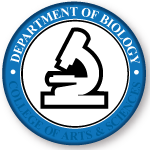Document Type
Conference Proceeding
Publication Date
11-2016
Abstract
The Omaha Public Schools (OPS) Science Office collaborates closely with community partners to facilitate a private foundation grant that seeks to improve science education by focusing on in-service, science teachers’ professional learning in the context of professional development (PD) experiences and targeted graduate coursework. The three goals of the K-12 Comprehensive Science Teaching and Learning Grant are to 1) increase student achievement in science, 2) increase teacher effectiveness, and to 3) align and enhance science curriculum. At the end of year one, 83 teacher participants have taken graduate courses, attended professional conferences, completed action research projects, and/or have participated in content immersion workshops based on personalized professional learning plans. All of the participating teachers complete an action research portfolio and are assisted by one of 11 science instructional coaches—master teachers who ensure that the teachers’ professional learning is translated into improved classroom practice.
The science instructional coaches’ preparation included training from the Institute for Inquiry affiliated with San Francisco’s Exploratorium, Discipline-Based Educational Research and other graduate courses through the University of Nebraska at Omaha (UNO), The Art of Instructional Coaching Training and consulting from Elena Aguilar, and a series of Science Research Immersion Workshops by Omaha’s Henry Doorly Zoo and Aquarium, as well as the University of Wisconsin-Extension affiliated with Upham Woods Outdoor Learning Center. The OPS K-12 Science Supervisor is the principal investigator and the UNO STEM Community Chair and the UNO Science Community Chair are the co-PIs for the collaborative grant effort. The shared-leadership model in OPS also includes two Elementary Supervisors and the Science Lead Teacher to ensure full alignment among district goals, participants’ plans for growth, and partners’ agendas. Additionally, a grant advisory team including district-level leadership and grant officers participates in quarterly meetings to oversee the progress. Education Northwest conducts the external grant evaluation.
Included in this report is the structural context of the project and implementation data from year one. These preliminary data are collected from surveys, interviews, observations, field reports, and standardized tests. Briefly, the data from assessments of youth in science from standardized test results showed slight district-wide gains at elementary school (+2% of students meeting standards) and middle school (+3% of students meeting standards) while high school standardized scores remained unchanged. Although the initial student data are encouraging, at this point in the project timeline the focus of this paper is on three of the four main structures of PD opportunities within the grant (i.e. graduate course work, conference attendance, and content immersions). The authors will discuss the details of these structures and identify potential and valuable next steps for research.
The Omaha Public Schools (OPS) Science Office collaborates closely with community partners tofacilitate a private foundation grant that seeks to improve science education by focusing on in-service,science teachers’ professional learning in the context of professional development (PD) experiencesand targeted graduate coursework. The three goals of the K-12 Comprehensive Science Teachingand Learning Grant are to 1) increase student achievement in science, 2) increase teachereffectiveness, and to 3) align and enhance science curriculum. At the end of year one, 83 teacherparticipants have taken graduate courses, attended professional conferences, completed actionresearch projects, and/or have participated in content immersion workshops based on personalizedprofessional learning plans. All of the participating teachers complete an action research portfolio andare assisted by one of 11 science instructional coaches—master teachers who ensure that theteachers’ professional learning is translated into improved classroom practice.The science instructional coaches’ preparation included training from the Institute for Inquiry affiliatedwith San Francisco’s Exploratorium, Discipline-Based Educational Research and other graduatecourses through the University of Nebraska at Omaha (UNO), The Art of Instructional CoachingTraining and consulting from Elena Aguilar, and a series of Science Research Immersion Workshopsby Omaha’s Henry Doorly Zoo and Aquarium, as well as the University of Wisconsin-Extensionaffiliated with Upham Woods Outdoor Learning Center. The OPS K-12 Science Supervisor is theprincipal investigator and the UNO STEM Community Chair and the UNO Science Community Chairare the co-PIs for the collaborative grant effort. The shared-leadership model in OPS also includestwo Elementary Supervisors and the Science Lead Teacher to ensure full alignment among districtgoals, participants’ plans for growth, and partners’ agendas. Additionally, a grant advisory teamincluding district-level leadership and grant officers participates in quarterly meetings to oversee theprogress. Education Northwest conducts the external grant evaluation.Included in this report is the structural context of the project and implementation data from year one.These preliminary data are collected from surveys, interviews, observations, field reports, andstandardized tests. Briefly, the data from assessments of youth in science from standardized testresults showed slight district-wide gains at elementary school (+2% of students meeting standards)and middle school (+3% of students meeting standards) while high school standardized scoresremained unchanged. Although the initial student data are encouraging, at this point in the projecttimeline the focus of this paper is on three of the four main structures of PD opportunities within thegrant (i.e. graduate course work, conference attendance, and content immersions). The authors willdiscuss the details of these structures and identify potential and valuable next steps for research.
Recommended Citation
Schaben C, Cutucache C, Grandgenett N, Mulkerrin E, Hougham RJ. 2016. Supportive structures for successful science teachers’ professional development. International Conference of Education, Research, and Innovation (ICERI) Proceedings, pp. 4653-4662.


Comments
This paper was reused with permission.